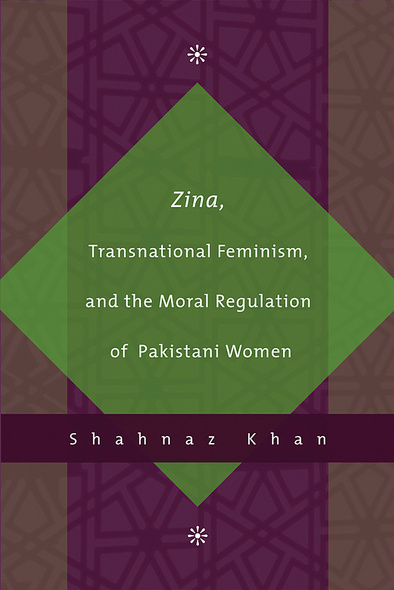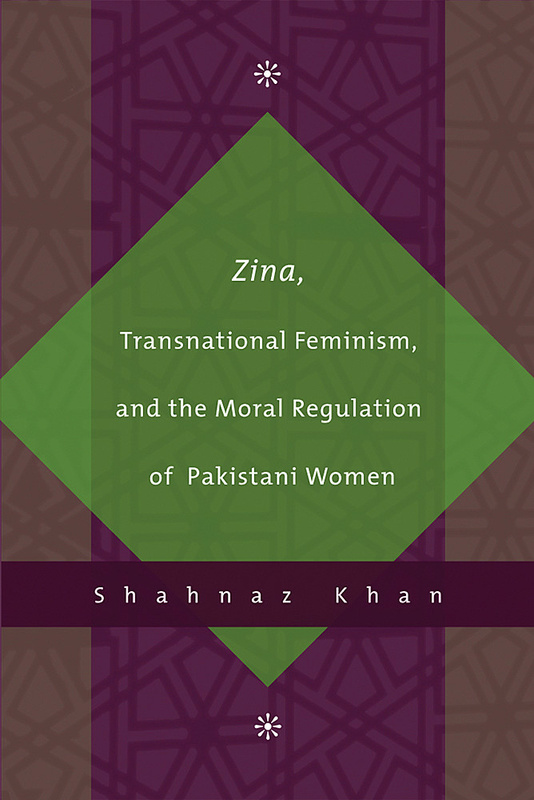Our shopping cart is currently down. To place an order, please contact our distributor, UTP Distribution, directly at utpbooks@utpress.utoronto.ca.

The Zina Ordinance is part of the Hadood Ordinances that werepromulgated in 1979 by the military dictator General Zia-ul-Haq, aself-proclaimed president of Pakistan. Since then, tens of thousands ofPakistani women have been charged and incarcerated under the ordinance,which governs illicit sex. Although most of these women aresubsequently released for lack of evidence, they spend months or yearsin jail before trial. To date, these laws still remain in effect,despite international calls for their repeal.
Over a five-year-period, Shahnaz Khan interviewed women incarceratedunder the zina laws in Pakistan. She argues that the zina laws helpsituate morality within the individual, thus de-emphasizing theprevalence of societal injustice. She also examines the production andreception of knowledge in the west about women in the third world,identifying a productive tension between living in the west and doingresearch in the third world. She concludes that transnational feministsolidarity can help women identify the linkages between the local andglobal and challenge oppressive practices internationally.
This analysis will appeal to scholars and students of gender, law,human rights, and Islamic/Middle Eastern studies.
Awards
- 2008, Shortlisted - Book Award, Canadian Women's Studies Association
Khan’s emphasis on reading zina laws within a larger politicized context, her problematization of the role of the native informant, and her argument to transcend binary thinking gives a cutting edge to this important work. An excellent book for those in the fields of gender studies, Muslim women, Orientalism, and global politics.
Introduction: Locating the Issue
1 Native Informing on the Zina Ordinance
2 Contextualizing the Zina Ordinance
3 Speaking to the Women
4 Disobedient Daughters, Errant Wives, and Others
5 Current Challenges to the Zina Ordinance
6 A Politics of Transnationality and Reconfigured NativeInforming
Notes
References
Index






